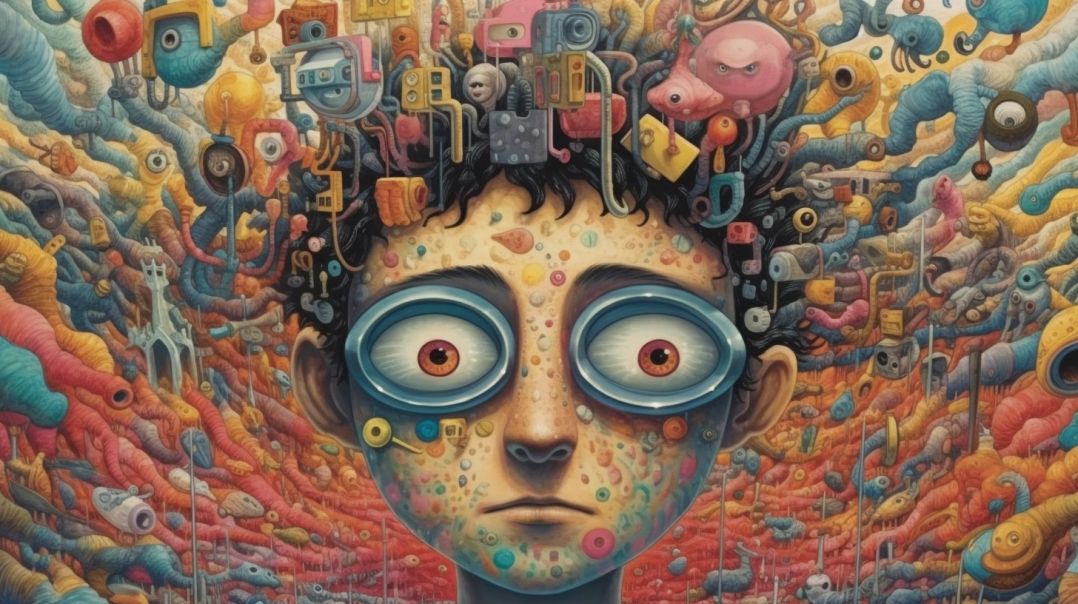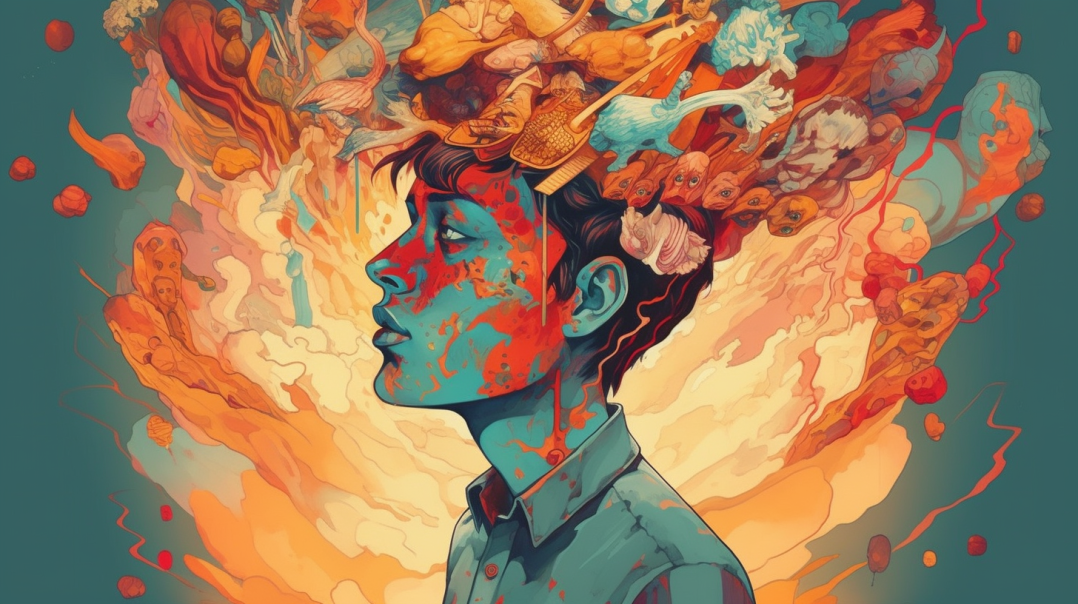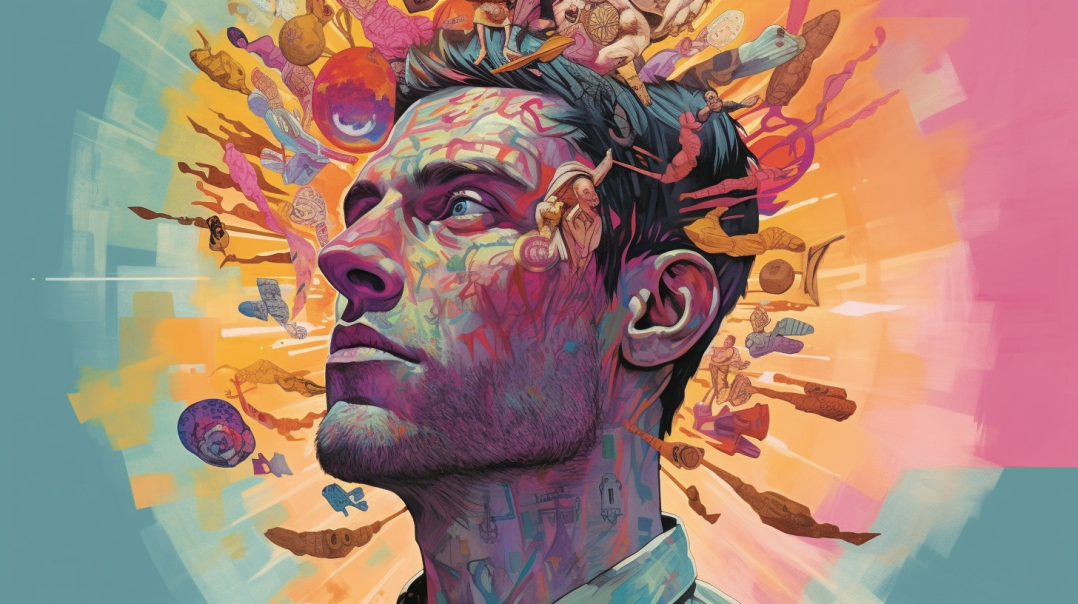Can't Get You Out of My Head Review
Does it feel like the world is breaking down? Does it feel like there is no hope and that everything is failing? You are not entirely out of place if this feels or sounds familiar. Adam Curtis has a new documentary series called, “Can’t Get You Out of My Head,” which is truly earth-shattering. All of his documentaries are amazing. I’ve had a chance to watch all of his series. They are multi-part journeys, but this one is truly terrifying. Let’s think about some of the ideas presented in the documentary.
Society and power
One of the things he focuses on in this documentary is society and power across the globe. He takes us to Britain, America, and China. He starts with history to demonstrate a few points. One of the most important points concerns how we feel within society and our decisions.
What you feel has much to do with where you fall in the power structures of your society. Suppose you are in a group with power and privilege (like white heteronormative people in the US). In that case, you probably feel better about society than someone who does not have power and privilege (women of colour, minorities etc.). In China, it has to do with your approximation to wealth and to the party. Most Chinese people are fairly disenfranchised from any power in their society.
Although he has done an entire documentary on it (Century of the Self), he attacks individualism again in this documentary. Individualism cannot change society. Collective action can change society, but many people are invested in keeping things the way they are. There is also a record of collective action failures where those in power muted or curtailed the progress to be made by people rising up. Instead of trying that, people turned inward and on themselves. This is the problem with modern politics.
Another point I felt was incredibly salient and certainly got me thinking about some things was that Reality is too variable. What does that mean? The world is full of problems. Solving problem A can cause new problems. Things happen that are well outside our control. Humans want stability, but that’s not how the planet works. Much of what has been done since World War II was to ensure stability within society and within “the system.” However, these attempts to create stability have often caused more instability and have harmed people in other ways. There are always unintended consequences.
In our modern period, banks and financial institutions offered a new form of stability. Politics is messy and hard; the banks offered a way out. If they could keep the economy moving and keep everyone employed (at least marginally so), there would be fewer uprisings and protests. Collective action would take a back seat to make money. Big Tech has taken huge advantage of this. Their business model is about moving faster than the government can regulate them. Banks have become the dominant business in the American economy, and their reach has reached global proportions to the detriment of real politics.
Wealth, Power, and Collectivism
In this take-over by the Banks, thanks to neoliberalism, wealth is more powerful than democracy. Politics is entirely co-opted by money, and I recommend my first book on this. Banks and corporations have all but neutered the governments of the world. They are too big to regulate and far too powerful.
However, this great financial stability, which one could argue quite ended in 2008 with the debt crisis, has had knock-on effects on actual humans. It has caused the marginalization of people and increased feelings of powerlessness across the developed and undeveloped worlds. In 2022, we are seeing some gasps of real politics, but banks and corporations are already thwarting it.
The present labour moment is the last gasp of collective action and people's birth as a commodity. When all that matters is money, people will do whatever is to chase it. This is why people have no loyalty to their jobs: it’s only money, and money moves very quickly in our new world. We throw around terms like The Great Resignation. Workers are responding to a system where you must grab as much cash as possible because there is nothing else. Everything has been reduced to money.

Adam Curtis posits this singular question, What can compete with the money system? His answer? Nationalism and stories of the past. This is why nostalgia in all its forms is popular. We wish for a world without modern social problems like BLM or mass violence. Our system will not respond to these problems, and politics is so broken that our governments cannot do anything positive for society. It doesn't matter in our modern money system if it doesn’t interfere with the next quarter’s earnings. This has led to a new kind of apathy.
We have no dreams. We have no future. We have a bland, materialistic presence. This system has broken everything from politics to dating. What is the point of dating and getting married when everyone is a consumer? A commodity to be bought and sold by Facebook? Social power is one of the fewer powers left available to people. No one wants to be left behind. Then there’s the economic angle. Life is expensive. The old idea that men pay with money and women pay with their bodies has gone on hyperdrive. Everyone is trying to compete in a money system not built at the human scale or meant to handle human problems. With the rise of computers, algorithms, and technology, we’re moving into a new era controlled not just by money but by computers as well. We are soon to all be victims of Big Data.
Data, Narratives and Post-Modernity
Curtis starts his discussion of data about the new masters of our universe: Banks. With enough data, risk can be handled and managed, leading to a more stable world. Indeed, data controls much of our world now. From employment to credit decisions, it’s all based on data. In 2008, the data got out of control and crashed the world economy. Some companies make more money on their data than on providing a product or service. In our new reality: data is the product.
It seems like everything is ruled by data these days. The term “data-driven” gets thrown around every problem. As if, collected numbers and actions can be compiled into something that can rule us like a god. The problem is that it takes out the real human story behind everyday actions. Then there’s the narrative that data can tell us or the narratives that we choose to tell ourselves about data. I’ve written about narratives at length and how dangerous they can be. Both data and narratives ignore the lived reality of real people.
That’s the problem with data and narratives. The data is taken by certain people within the power structure, often about people who are equal to them, and it erases some of the present problems within society. Data is useless without the story behind it. But the worst part is that data doesn’t account for the actual actions and feelings of humans.
Humans live in stories. Data and new technology try to create a new and different story, but humans don’t quite work that way. Humans work in lived experiences. They form opinions based on what they see and their past experiences. Curtis touches on the mass shooting phenomena within American society and looks at it as rejecting the new money-based stability and the progress of post-modernism.
Could mass shootings be a rejection of post-modernity? The movies are no good, the schools destroy you, teachers can’t be trusted, and all forms of authority are against you. Rather than seek collective action, these men decided to take individual action. Because in an individual society, that’s the only action you can take. In his analysis, mass shootings are an inflection point of people being broken down so badly that they have no choice but to rise up on their own and do something to make a change. The narrative is unsatisfying, everything is so unsatisfying, and in the absence of collective action within an individualistic society, a mass shooting is as much a force change as it is a release valve.

What’s the new solution? I’ve spent my career working on it, telling a new story. Curtis frames this within politics on all fronts. The left needs to tell a new story, not with facts, logic and numbers like Sanders or Clinton but with a dream—a dream of a new future. Indeed the opening scenes of this story are already flirting with leftist social media. The right looks to the past, and it is more unified than the left, but ironically, they are defending the very system that disenfranchised them to start. It’s not time for more data or a new narrative but an entirely new story. There are already new stories popping up to explain our complicated world.
Conspiracy and Our Complicated World
The Banks sought to simplify a complicated world and smooth out the problems and difficulties faced in the past. The new money system wanted to create stability and prosperity for all by opening markets and spreading wealth and progress worldwide. In the late 1980s, as China opened to capitalism and neoliberalism settled into power in the West, a new dynamic of Internationalism v. Nationalism began. Internationalism held that with open economies, the money system would create the stable world that everyone wanted. The best part is that it was very good for business. However, globalization doesn’t do much for people on the ground. Nothing is at a human scale.
The lack of humanity in human affairs has manifested itself in the modern conspiracy movement(s). Although the CIA coined the term in the mid-1960s to explain the phenomenon of people not believing the official story around the Kennedy assassination, much of modern conspiracy theory attacks the faceless bureaucracy of government and its computers and data. Conspiracy is a great way to reduce our complicated world to far simpler plots that make sense to the average person. In 2016, we were introduced to “The deep state.”
This idea was that government bureaucrats were secretly plotting against the people's will and that they had to be attacked. In some cases, this manifested in actual attacks like the Malheur rebellion against the Bureau of Land Management over cattle grazing rights on public land. A rancher seized a whole government facility for months as a last-ditch attempt to make the government pay attention to people like him.

In reality, conspiracy theories with no basis have completely infected modern politics. The same people who “backed the blue” attacked cops on 1-6 due to their belief that the 2020 election had been stolen, even though the only cases of election fraud were votes for Trump, not Biden, and even Trump’s own election monitors only found more votes for Joe Biden, no new votes for Trump.
Rather than solve the actual problem, both sides of America’s political divide retreated into the conspiracy. The left had Russia and the embarrassment of the Mueller report, even though there were actual scandals worth focusing on. The right embraced Qanon. Instead of talking about policy and how to manage our societies, we’re just talking back and forth about things that have little basis, in fact, in separate realities that make effective governance all but impossible.
Living in the age of no new ideas
After going through all these ideas, Curtis sums up the real problem: the world has run out of ideas. Our system doesn’t work, and we don’t know how to change it. From Beijing to Washington D.C., from London to Moscow, we have all run out of ideas on how to run the world. The Money-system couldn’t manage it. Computers can’t solve all of our problems. People are unhappy and lashing out violently. We look backwards for ideas on changing things, but the old ideas don’t work anymore. Unfortunately, Curtis doesn’t offer any solutions. He leaves us with the problem: no new ideas. What we need is a brand-new idea for how to manage our world, and without we will continue to flounder in our present soup of problems.

An unfinished coloring book (A Short Story Collection) by Cameron Cowan
an unfinished coloring book is a collection of short stories from Cameron Cowan. These short stories explore dramatic moments in the lives of everyday people. The collection also features the exclusive release of The RKO Killer: An I.G. Farben Mystery.
The collection includes:
The Diner
What happens to the employees of a diner that are being torn down to make way for a new interstate? This is their last night in The Diner.
The Swedish Connection
Two artists, one relationship failing, and a really bad bottle of alcohol. Two men talk about their lives, their hurts, and their problems over one really bad bottle of vodka that they can't stop drinking.
The Kingdom of Nordstrom
The world has ended and the air had gone sour. One drifter finds a colony of people surviving in a derelict mall in Tacoma. Will he stay in this new kingdom or will he continue to wander the highways?
America Discount World
Set in the near future, America's cultural heritage is on sale to the highest bidder. Dale has made a life selling off America's cultural heritage and when a soon-to-be-divorced reporter comes to interview him about it; a new relationship just may form.
The Classy Drug Dealer
Andrej leads a quiet life running his dry cleaning and laundrette. However, it is only a front for his real business. When the consequences of his actions walk through the door one night, Andrej is forced to sacrifice everything, even his own life.
Beverly Gardens
Set amid the California housing crisis, 4 tenants in an aging building try to figure out how to survive in a world that is trying to kill poor people and preventing them from surviving and living.
Windswept Wastes
The cold war is on and America is building its nuclear arsenal. Set in the years at the end of Vietnam, one man gets a job making nuclear triggers at a Colorado plant. This is his story.
Sanctuary
What is a teenager is a bland suburb supposed to do on the weekends? In this story, two boys find a great place to party and we learn about the secret and seedy underworld of the American suburb.
The Ticket
Topher has just a few hours to get to the lottery office in Olympia, WA to turn in a lottery ticket that will change his life. There's only one problem: he has no way to get there. Will he make it? Can he get the money in time?
The RKO Killer
In this collection exclusive, Isaac Farben is hired by KYW radio in Chicago during the roaring 1920s to find a criminal who is making headlines for an exclusive radio interview. Farben travels with his trusty assistants Mr. and Mrs. Rustin and Anna Fowler to southern Illinois to find this man and bring him back to the radio station.






